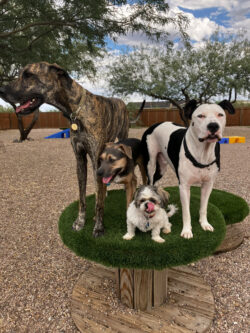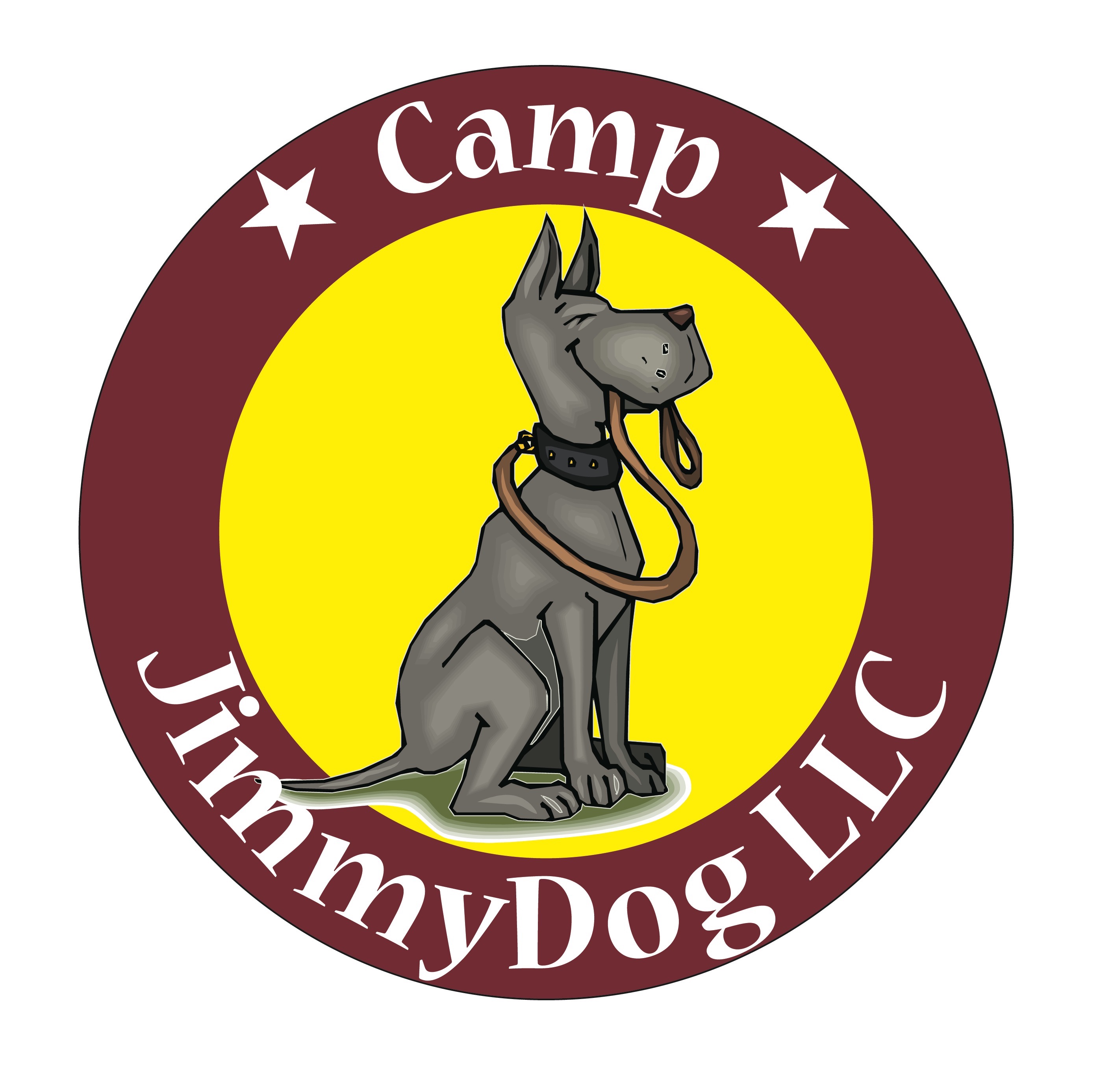Is Your Dog A Good Fit?
We are a cage-free home environment. Our guests move about freely and enjoy our house, our yard, our company and the company of our other guests. It is important that they are well socialized and comfortable with both dogs and humans.
We are a home environment, accept a limited number of dogs and have plenty of space, both inside our home and out. Our guests don’t feel that same pressure that they would in other types of facilities.
Your dog may be a social butterfly, or, they may accept other dogs but don’t necessarily need to play. Social styles vary and often change over time.
We know that everyone has a quirk or two and their own personality. However, some behaviors are not acceptable in our pack environment. Safety is our priority.
Don’t hesitate to reach out with questions and to discuss whether or not your pup is a good fit and schedule a meet & greet.

What Does A Good Fit Look Like?
- Comfortable with being in a group of varied dogs in an off leash, social situation.
- Meets new dogs and people without fear/anxiety/aggression . A “getting to know you” period when meeting new dogs or people is normal. A little reserved or slightly timid at first can be normal. (see more on fear/anxiety below)
- Understands, accepts and participates in good dog etiquette such as sniff and be sniffed. Butts, mouths and feet. Who are you? What did you eat? Where have you been?
- Understands and respects social cues given by other dogs – Example: Respects when someone doesn’t want to interact/play
- Gives appropriate social cues. Doesn’t overcorrect
- Plays appropriately – does not aggressively dominate, latch on, show teeth, bully
Red Flags
Aggression or clear potential for aggression – We cannot accept a dog that has shown any aggressive behaviors or a strong potential for aggression towards either dogs or people.
Lack of impulse control – Probably the #1 issue we see. Simply put, a dog with impulse control can resist the temptation to perform unwanted behaviors. It may be counter surfing, jumping, rushing through doorways, barking and lunging at people or other dogs, or a host of other troublesome and potentially dangerous behaviors.
A dog with poor impulse control can be so focused, wound up or agitated by whatever is stimulating them that they will not listen to commands or withdraw from a situation. This can potentially escalate to dangerous situation.
Many owners confuse impulse control issues with their dog “just having fun”, “being happy” “being a dog” , “just trying to get someone to play”, or as behaviors they will “grow out of”. Often dogs without good impulse control will repeatedly annoy other dogs and ignore their attempts to let them know they are “too much”. This creates an unfair situation for the dog being bothered and unsafe situation for both.
Dogs with poor impulse control can easily escalate past play in a high energy, pack situation. Instinct, such as prey drive or herding, can takeover and quickly things become unsafe. Additionally, a dog with poor impulse control can trigger these instincts, as well as self defense, in others.
A truly happy dog is a well balanced dog that has fun, knows how to relax. calm itself and respect the others around them. Dogs crave direction and benefit from clear boundaries and rules. Impulse control is something that needs to be taught, it doesn’t just happen.
In many cases we can work with your dog and help them to become a better “camper”. However, we can’t do it alone. We are happy to support owners and their pups that continue to work and reinforce the good behaviors outside of Camp Jimmydog as well.
Fear and/or extreme anxiety – As mentioned earlier, it can be normal for some dogs to be a little timid at first when in a new situation or when meeting someone new. I like to say they are “cautiously excited”. There may be a low tail wag and a bit of uncertainty but in a fairly short period of time they are comfortable and happy to have met new friends and be exploring a new place. Dogs that are very fearful (of either dogs or people) are a potential danger to us, themselves and others in a pack situation.
Resource guarding – Depending on the intensity, ability to “leave it” and what they typically guard, this can be an issue.
Other considerations
An understanding of basic obiedience. This doesnt mean that your dog knows every command and trick in the book. Or that they are 100% perfect. What it does mean is that you and your dog have learned to communicate. They know some commands and have some rules at home. They look to you for direction and come to you vs running the other way when you call to them.
We do work with our guests on basics such as sits and recalls while here. This keeps them engaged with us and its fun for all to have the pack working together. However, we do not offer training.
